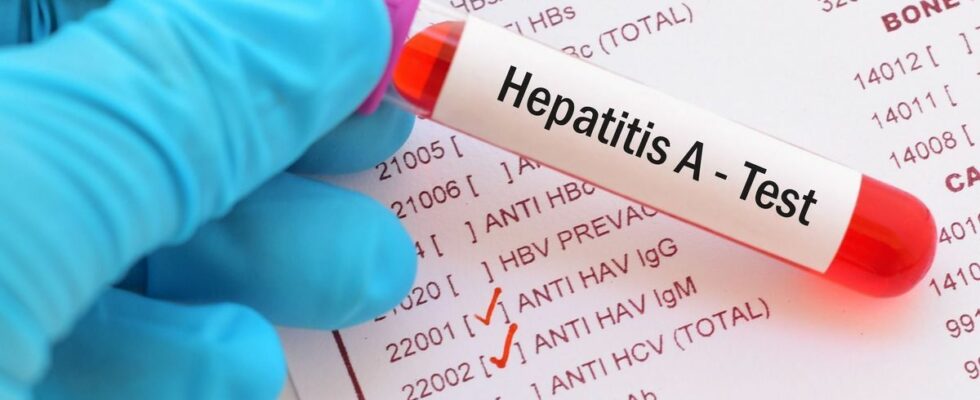Published on
Updated
Reading 2 min.
in collaboration with
Dr Gérald Kierzek (Medical Director of Doctissimo)
Four college students were infected with hepatitis A in the town of Le Havre, in Normandy, and were hospitalized. What is hepatitis A and how is it treated? The answers from Dr. Gérald Kierzek, emergency physician and medical director of Doctissimo.
Friday May 24, four sixth-grade middle school students at the private Montesquieu Sainte-Marie establishment in Le Havre were contaminated with the hepatitis A virus. The adolescents were hospitalized. The Normandy Regional Health Agency and Public Health France have opened an investigation.
What is hepatitis A?
A viral liver disease that is transmitted by hands or contaminated food, hepatitis A is a benign pathology, most of the time. However, it can cause serious cases in adults.
How does it manifest? “The disease causes few symptoms” explains Dr. Gérald Kierzek, emergency physician and medical director of Doctissimo. “The most common are feverfatigue, jaundice and abdominal pain. It is even possible to be asymptomatic“. Generally, recovery is spontaneous and without after-effects.
“The hepatitis A virus is transmitted mainly by the fecal-oral route, through the ingestion of food or water contaminated with fecal matter” says the doctor. But there are other possibilities of contamination such as:
- Direct contact with an infected person, particularly due to lack of hand hygiene;
- Indirect contact via objects soiled with infected feces;
- Oro-anal contact during sexual relations.
“The question that arises is therefore to know where the first case comes from: is it food? An investigation should be carried out in the establishment’s canteen.” suggests the doctor.“But also check the vaccination college students.”
To avoid catching hepatitis A, it is essential to respect a certain number of hygiene measures. At the Montesquieu Sainte-Marie private college, hydroalcoholic gel is now distributed to all students at the entrance to the college, but also at the start and end of each lesson. According to the head of the establishment, the premises, equipment and toilets are also cleaned several times a day.
Dr Gérald Kierzek also reminds us of other essential hygiene rules to respect:
- Se wash your hands regularly with soap and water, especially before handling food and after using the toilet;
- Avoid consuming water or food potentially contaminated by human feces (unwashed fruits/vegetables, raw shellfish, etc.);
- Get vaccinated against hepatitis A, especially before traveling to areas where the virus is actively circulating.
